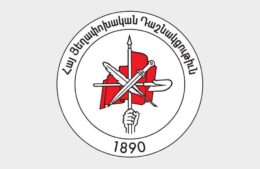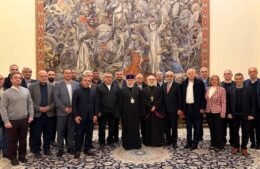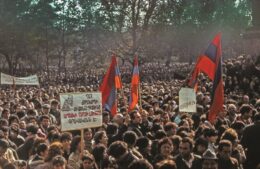National Council of Churches Urges Obama to Help Kessab
- (0)
National Council of Churches
WASHINGTON—The National Council of Churches (NCC) has sent a letter to President Barack Obama expressing concern about the plight of Christian communities in Syria, especially the depopulation of the Armenian community of Kessab, stating: “While Syrians of all religious communities are caught up in this horrible conflict, of particular concern to us are the Christian communities, which are often the most vulnerable.”
“One situation that has just come to our attention is the attack on the Armenian villages of Kessab. Though this attack comes in the wider context of the overall Syrian conflict, it nevertheless has brought death and destruction to the Christian communities there,” the NCC letter reads in part. The letter specifically urges the President to “safeguard the vulnerable Christian communities” and to “restore stability to the Armenian communities of Kessab.”
Founded in 1950, the NCC has been a leading force for ecumenical cooperation among Christians in the United States. The 37 NCC member communions – from a wide spectrum of Protestant, Anglican, Orthodox, Evangelical, historic African American and Living Peace churches – include 45 million persons in more than 100,000 local congregations in communities across the nation.
Following is the full text of the letter signed by James Edward Winkler, President and General Secretary and A. Roy Medley, Chair, National Council of Churches:
“Dear President Obama,
The National Council of Churches has been, since its inception, an advocate for peace in the Middle East. No matter the particular circumstances that have prompted our call for specific actions to bring about peace over the years, our position has been very much guided by the perspective of our church partners living in the region.
One of the most violent crises in today’s Middle East is the ongoing conflict in Syria. While Syrians of all religious communities are caught up in this horrible conflict, of particular concern to us are the Christian communities, which are often the most vulnerable.
One situation that has just come to our attention is the attack on the Armenian villages of Kessab. Though this attack comes in the wider context of the overall Syrian conflict, it nevertheless has brought death and destruction to the Christian communities there. Those Christians that managed to escape the carnage are now living as refugees.
On behalf of the National Council of Churches, we would urge you to be vigilant in your efforts to end the Syrian conflict, and among these efforts find a way to especially safeguard the vulnerable Christian communities, and particularly to restore stability to the Armenian communities of Kessab. With membership in the Council that includes churches with roots in the Middle East, including the Armenian community, we stand ready to assist you in these efforts in whatever way we can.”



















